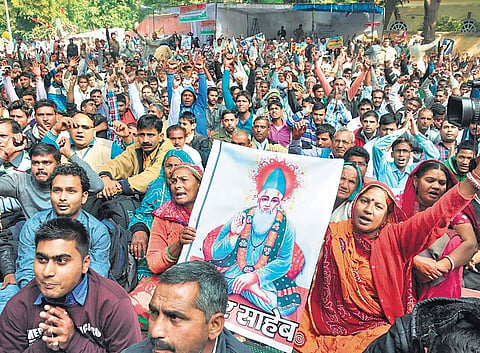

What hope in life can there be for a poor village boy who, at the age of 15, is arrested as a thief? Especially if rumour is rife about who his real father is—not the scion of a decaying but once glorious family, but a long-ago singer who had come by and seduced another man’s wife? Especially, too, if the boy himself is no paragon of virtue: he is sleeping with the very woman who had once been his wet nurse; he is fond of arrack; and he does not seem to have any qualms about stealing from the village temple itself.
But Vedaraman, or Vedan, the protagonist of Malayatoor Ramakrishnan’s The Sixth Finger, despite being saddled with all these obvious drawbacks and flaws (not to mention a father felled by a stroke), has one thing that others do not. He has a sixth finger on his left hand, an appendage that seems useless until one day when it seems to come to life and glows in the dark.
Vedan, already taken under the wing of a highly respected old gentleman, soon realises that his finger is not merely ‘lit up by fireflies’, but has greater powers, magical powers. Even as he detects water underground and enables his mentor to dig a well to reach it, even as he foretells the death of a man he has not even met as yet—Vedan is changing, evolving.
And this change accelerates, catapulting this rural boy to a godman, a baba who is worshipped and revered by politicians and industrialists, a baba who plays kingmaker… yet, is it only Vedan who makes men chief ministers and who, through that uncanny ability to see into the future, is able to make men rich and powerful?
Because if Vedan is the kingmaker, then those who surround him—Chinnappa, Madhavan Nair, Arunagiri, Surekha—are godmakers. For their own reasons and to fulfill their own ambitions, these people transform the young man into a Bhagwan with devotees in the thousands.
The Sixth Finger, published (in the original Malayalam) in 1994, has been published in its English translation at a singularly appropriate time: what with the connections between politics, big business and religion growing ever stronger (and ever dirtier?), the story of Vedan and his sixth finger rings a bell.
Ramakrishnan’s story weaves in different elements of this trend: the nexus between religious cults and politics, for example. The far-from-exemplary private lives of those who present a pristine façade to an adoring public; and the manipulations and machinations that go on behind the scenes.
What makes this book interesting is the relevance of its storyline, and the way Ramakrishnan slowly but surely traces the path of his hero, from Vedaraman the village thief to baba, the godman at his grand ashram.
The journey is an interesting one, and Vedan himself is an interesting character. Not by any means the quintessential ‘hero’, he is a tormented, tortured soul, constantly haunted by the past—his own, his family’s, and that of the woman who made him her lover when he regarded her as his mother.
Yet, Vedan is not the innocent. He connives, too, in the endeavours of the movers and shakers, to achieve their mutual goals. He is not a bystander: he is an active participant in all that he—and they—are able to achieve.
The sleaze of baba and his cohorts becomes a little long-drawn out and repetitive after a while. So too do the rambling, often vague references to spirituality. Both tend to dilute the impact of what could have been a gripping novel of power and politics. Prema Jayakumar’s translation tends to leave the occasional word unexplained, but is otherwise competent.